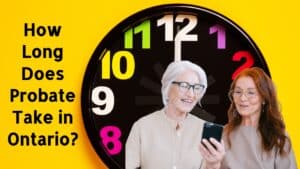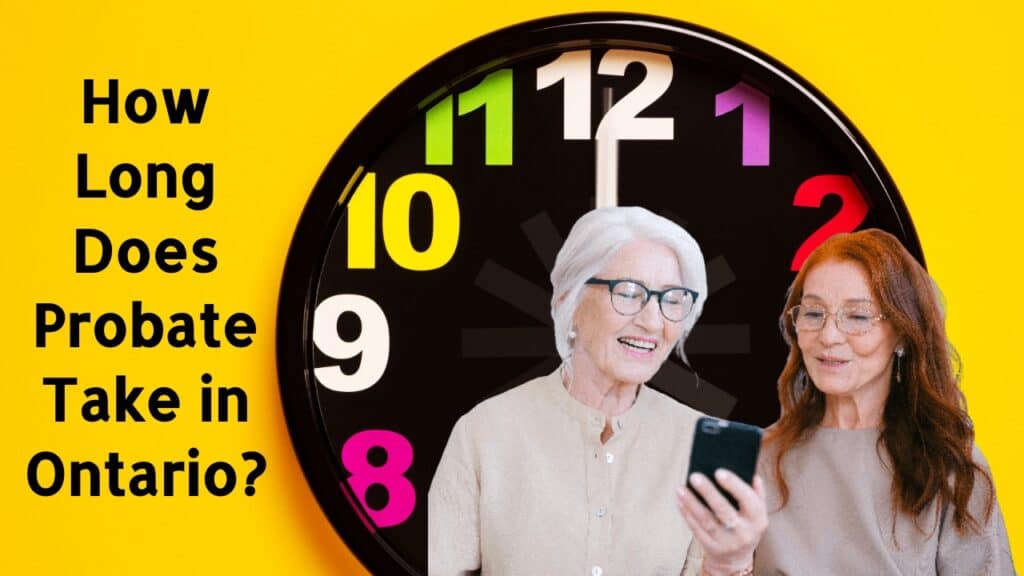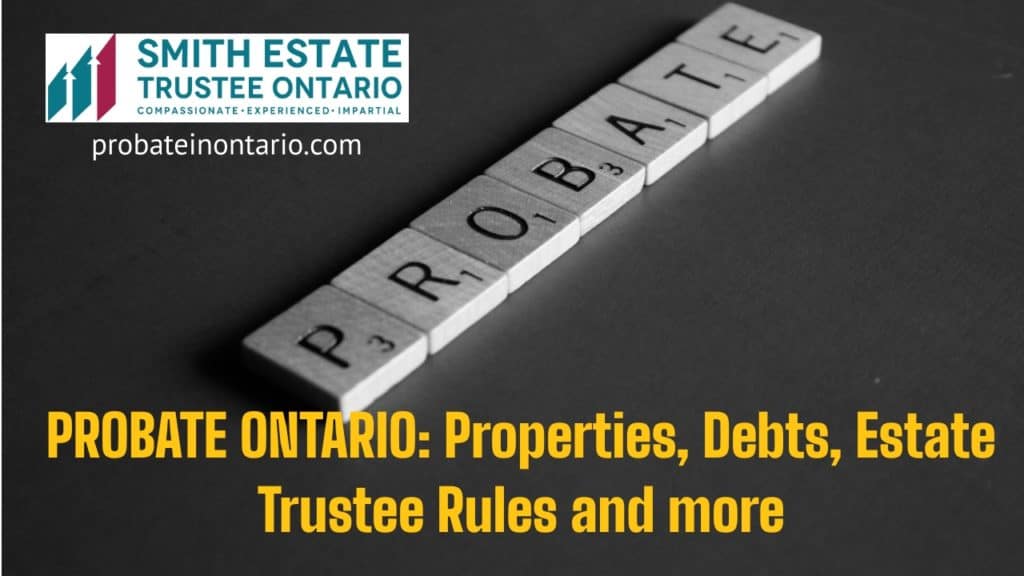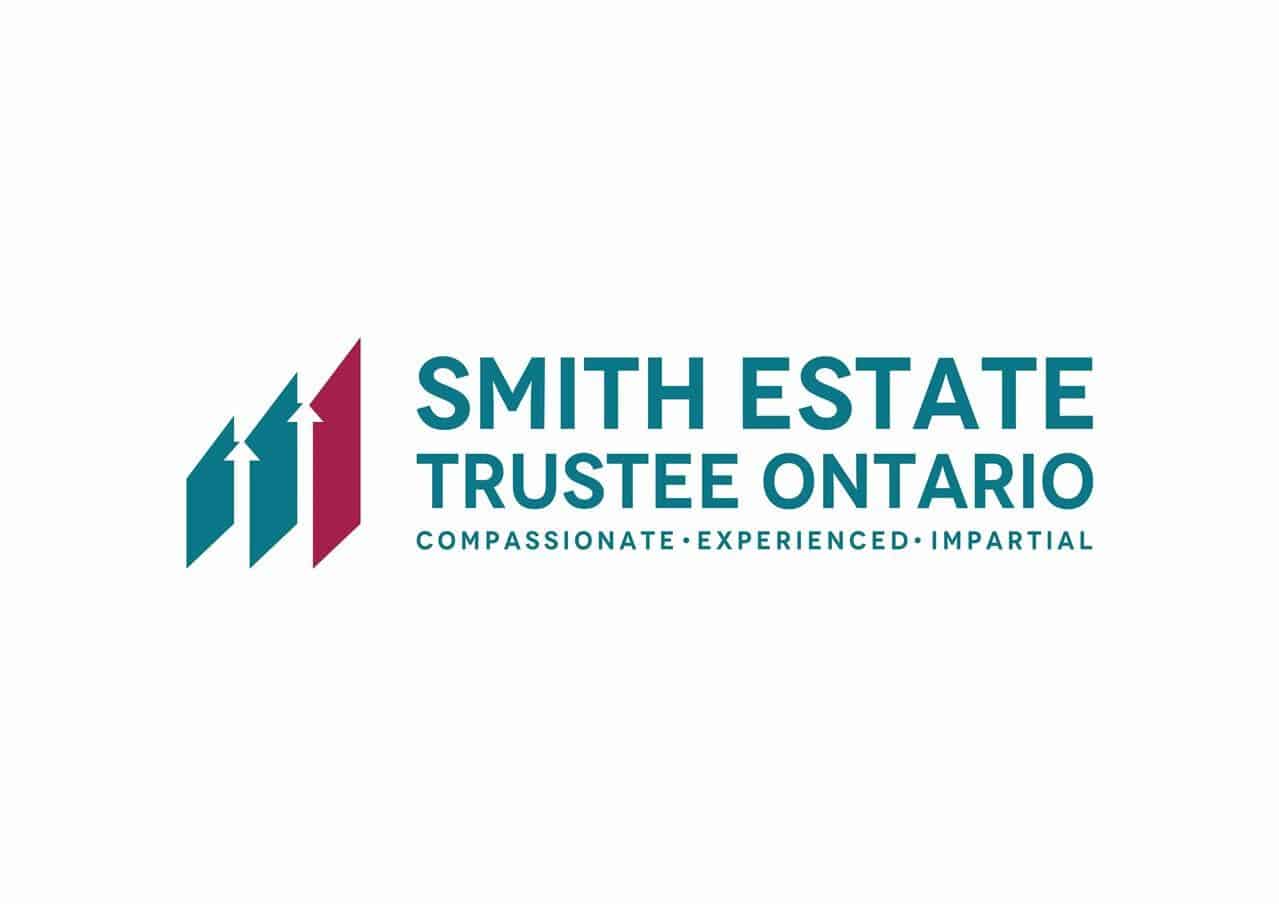We hope that you and your family are safe, healthy and secure during this coronavirus pandemic.
Ira Smith Trustee & Receiver Inc. is absolutely operational and Ira, in addition to Brandon Smith, is readily available for a telephone consultation or video meeting.
How long does probate take in Ontario introduction
If you are handling property that was left by the deceased, either in a will or without a will, the legal procedure to deal with it is called probate. There is even more to the procedure of probate than simply doling out what the person wanted his or her beneficiaries to have.
There are regulations on:
- Who can fulfill the role of Estate Trustee?
- The process of the court of probate.
- The rules determining how estate assets to be separated between property that must be probated and property that does not need to go through probate.
- How to deal with property and claims after probate has been granted.
- Dealing with claims against the Estate, especially competing claims.
- Completing the necessary final personal income tax return and any other outstanding returns, the Estate tax return and dealing with Canada Revenue Agency (CRA) on various personal income tax and estate tax issues.
- Understanding the terms of any life insurance policy or policies on the life of the deceased, advising the insurer of the death and determining who the life insurance proceeds should be paid to depending on the beneficiary designations.
- The overall duties of the Estate Trustee.
- Knowing how long does probate take in Ontario?
There are many questions about probate applications and more about the whole probate process that arise when someone dies and their financial situation needs to be understood, dealt with and their property distributed in accordance with their wishes as laid out in their will. It becomes even more of a challenge when the person dies without a will, which is called dying intestate.
Many times the named Estate Trustee is a close relative or trusted friend. They may have zero experience in acting as an Ontario Estate Trustee. They take on the role out of a sense of love for and obligation to the deceased. Many times they are either embarrassed to ask the estate lawyer questions because they believe they are too rudimentary and they should already know the answer. Sometimes they don’t ask the questions because they do not wish to incur the legal fees each time.
The purpose of this Brandon Blog is to answer the question, how long does probate take in Ontario and the 6 other most frequently asked questions we find people ask us in our role as Estate Trustee in our Smith Estate Trustee Ontario business.

What is probate in Ontario?
This is a very common question. It is actually the first question; the second one is how long does probate take in Ontario? Probate in Ontario is a legal process asking the court to:
- give an individual or company the authority to work as the Estate Trustee of an estate.
- Verify the authority of a person or company identified in the deceased’s will as the Estate Trustee.
- Formally approve that the deceased’s will is their valid last will.
How long does probate take in Ontario: What you will need to apply
To make probate applications to the court for probate you will require to submit documents needed as set by the Estates court regulations. It includes:
- A certified true copy of the deceased’s original will if any.
- If it exists, any addition or supplement that describes modifies or withdraws a will in whole or in part
- Proof of Death by a copy of the Death Certificate.
- the fully completed court forms which amongst other things, provide details regarding the nature, extent and valuation of the assets of the deceased at the date of death and calculates the probate fees, otherwise known in Ontario as Estate Administration Taxes. You have probably heard names like death tax or probate fees. In Ontario, the proper name is Estate Administration Tax.
This is the beginning of the probate process.

What is a Probate Certificate? Is a Probate Certificate Required?
Here are two probate Ontario FAQs in one! A person could make an application to the Estates court for a Probate Certificate if the:
- Deceased individual passed away without a will.
- Deceased’s will does not name an Estate Trustee.
- Financial institutions or other 3rd party wants evidence of a person’s legal authority to deal with the financial assets of the deceased which does not automatically pass to one more person by right of survivorship. Joint bank accounts, as long as the other name(s) on the accounts were not minors, would automatically pass to the other joint owners without having to through the application for probate through the Estates Court, otherwise known as the Probate Court.
- List of assets includes real estate where the real property does not automatically pass to one or more individuals because of joint ownership.
- Stakeholders disagree concerning the appointment of the Estate Trustee or any claim that the named Estate Trustee has a conflict or is otherwise not capable or qualified to act.
- Parties disagree or there may very well be a prospective disagreement regarding the legitimacy of the deceased person‘s will or some beneficiaries called in the will are not able to supply lawful authorization.
May times just being able to comb through the documents of the deceased to get the necessary information extends how long does probate take in Ontario.
How long does probate take in Ontario? Is a probate certificate always required?
Many people do not realize that a probate certificate is not always required in the Province of Ontario. For example, it is not required if all Estate assets are being transferred to another person through the right of survivorship because they were owned jointly or the beneficiary was a designated beneficiary under an insurance policy. In this case, probate is not required.
Examples of when probate is required, even if the deceased has a valid will are:
- It does not name an Estate Trustee (formerly called an Executor or Executrix) and a personal representative cannot be found.
- An Estate Trustee is named but that person has recused themselves and refuses to act.
- There is Estate property that will not automatically flow to another person due to the right of survivorship or being named as the designated beneficiary in a life insurance policy.
- It will be necessary to gain control over financial assets or real property and be able to convey them.
- A vesting order from the Court may be required to transfer ownership upon the sale of Estate assets.
What Happens After Probate is Granted?
After the grant of probate is when the fun really starts. That is when most of the activities of the Estate Trustee really happen like:
- Putting parties on notice regarding estate assets, property before probate that the Estate Trustee identified.
- Collection of the property or making sure that jointly owned property is properly transferred.
- Identifying and paying all rightful claims against the Estate before making any distribution to the beneficiaries.
- Making sure that no beneficiary or 3rd party is contesting the will or the actions of the Estate Trustee.
- Final tax return preparation and filing.
- Dealing with insurance companies.
- Making sure the correct probate fees have been paid.
- Understanding the Estate law issues or going to the Estate lawyer for advice when unsure.
- Handling the entire Estate administration process properly.
- Estate tax return preparation and filing and all the other activities I have already mentioned above.
All of this is before coming up with a scheme of distribution to the beneficiaries and getting either their unanimous approval or if opposed, an Order from the court approving the proposed distribution. It is important for an Estate Trustee to make sure that they have the proper authority to take the actions they need to and that nobody is opposing the Estate Trustee’s actions.
If an Estate Trustee oversteps their powers or is challenged and found to have been in the wrong, they have a personal liability to the Estate and the stakeholders. As you can see, it helps to have experience in the administration of estates.
So the Estate Trustee better get it right! In smaller Estates, this can be done relatively quickly. In larger Estates, especially if there are many contentious issues, how long does probate take in Ontario can be very elongated.

How long does probate take in Ontario for a large estate vs a small estate?
How long does it take to prepare a probate application? Once all of the facts are properly collected, it is a matter of hours to prepare and finalize all of the necessary documentation. The probate application can all be submitted online.
How long does it take to grant probate? The delay between filing the application and grant of probate varies greatly from Court registry to Court registry. In smaller regions, it does not take long at all. Historically in the Toronto region, without a court order requesting the court to expedite the issuance of the Certificate of Appointment of Estate Trustee, it could take many long months.
The probate process in Ontario can be either a larger or smaller legal process experience, depending on each unique situation. Estates in Canada that are valued at over $150,000 are covered by the larger probate process. The larger process is really the one that historically was in place in Ontario.
Since April 1, 2021, the province of Ontario has a new estate designation, a “small estate“. A small estate is for the probate legal process when it is valued at $150,000 or less. You can use a streamlined procedure if you are requesting probate of an estate that fits this definition.
If your application meets the requirements, is properly completed and all necessary documents are attached, the court will provide a probate certificate for a small estate. This certificate is referred to as a Small Estate Certificate. The certificate will provide you with the authority to take care of the estate assets that are listed in the certificate.
As this provision just went into place, I don’t have any statistics yet to report on whether or not this will positively affect how long does probate take in Ontario. If the deceased owned a house in their name only in the Greater Toronto Area with equity of at least $150,001, it will not speed things up.
How long does probate take in Ontario? Ontario allows probate applications by e-mail
What is the modification? The court has chosen to permit electronic submissions which are suggested to address the relentless stockpile issues. It also is part of a bigger campaign by the government to update the probate process in Ontario.
As I have stated above, the application for a Certificate of Appointment of Estate Trustee is part of the wider probate process. Allowing applications via email, which started in October 2020, is a reaction to both the backlog and the new truths forced upon the Ontario Superior Court of Justice Estates List section due to the new realities on how the court must adapt to operate in the COVID-19 pandemic era.
With any luck, this will quicken how long does probate take in Ontario.
How long does probate take in Ontario summary
I hope you found how long does probate take in Ontario Brandon Blog post helpful. If you are concerned because there is an Estate that needs a professional Estate Trustee, Smith Estate Trustee Ontario can help you. Since we are also a licensed insolvency trustee firm, we can also help if the deceased Estate is insolvent. We can also help if you or your business have debt problems.
It is not your fault that you remain in this way. You have actually been only shown the old ways to try to deal with financial issues. These old ways do not work anymore.
The Ira Smith Team utilizes new modern-day ways to get you out of your debt difficulties while avoiding bankruptcy. We can get you the relief you need and so deserve.
The tension put upon you is big. We know your discomfort factors. We will check out your entire situation and design a new approach that is as unique as you and your problems; financial and emotional. We will take the weight off of your shoulders and blow away the dark cloud hanging over you. We will design a debt settlement strategy for you. We know that we can help you now.
We understand that people and businesses facing financial issues need a realistic lifeline. There is no “one solution fits all” method with the Ira Smith Team. Not everyone has to file bankruptcy in Canada. The majority of our clients never do. We help many people and companies stay clear of bankruptcy.
That is why we can establish a new restructuring procedure for paying down debt that will be built just for you. It will be as one-of-a-kind as the economic issues and discomfort you are encountering. If any one of these seems familiar to you and you are serious about getting the solution you need, contact the Ira Smith Trustee & Receiver Inc. group today.
Call us now for a no-cost consultation.
We will get you or your business back up driving to healthy and balanced trouble-free operations and get rid of the discomfort factors in your life, Starting Over, Starting Now.
We hope that you and your family are safe, healthy and secure during this coronavirus pandemic.
Ira Smith Trustee & Receiver Inc. is absolutely operational and Ira, in addition to Brandon Smith, is readily available for a telephone consultation or video meeting.






